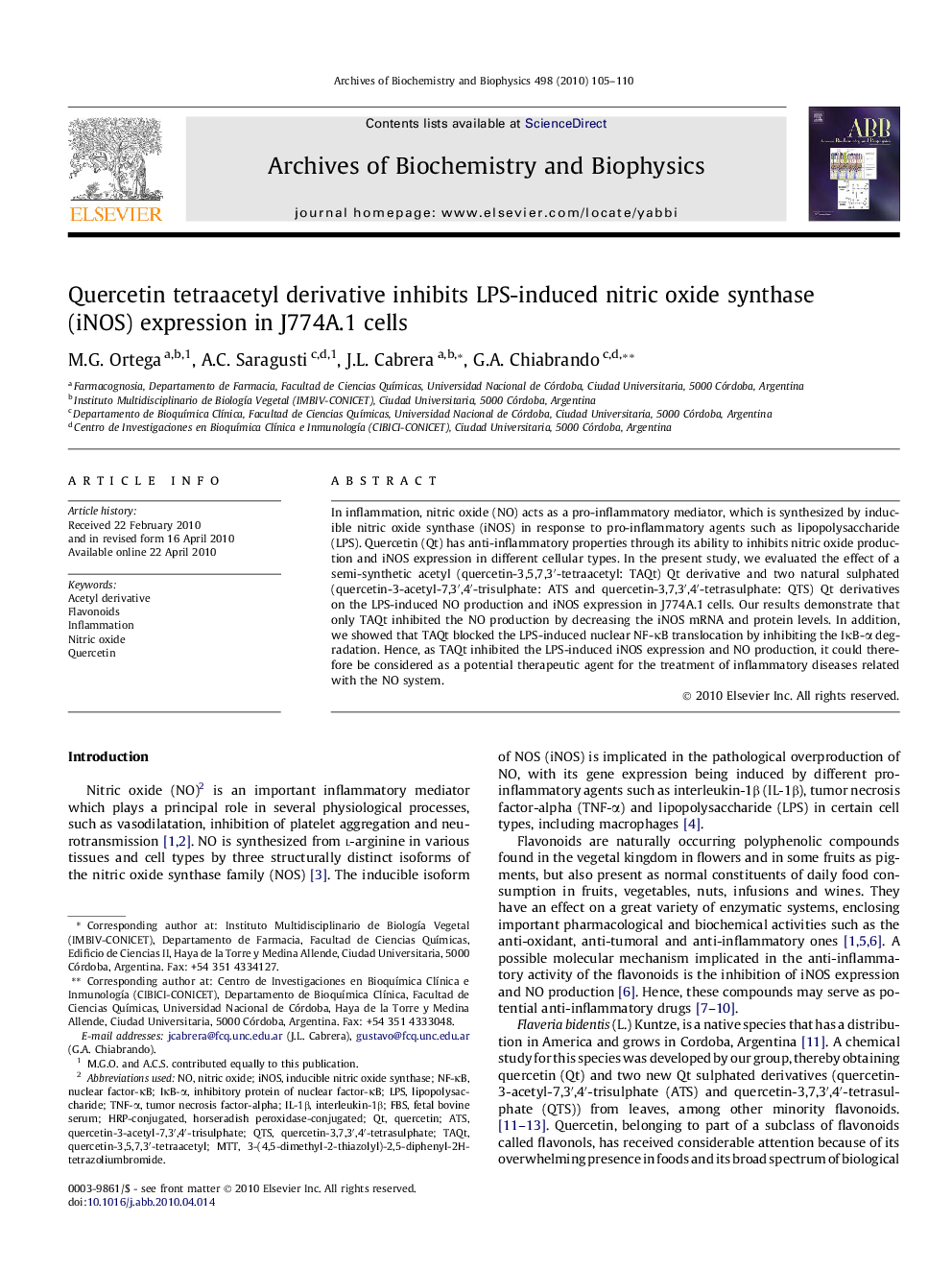| کد مقاله | کد نشریه | سال انتشار | مقاله انگلیسی | نسخه تمام متن |
|---|---|---|---|---|
| 1926104 | 1536434 | 2010 | 6 صفحه PDF | دانلود رایگان |

In inflammation, nitric oxide (NO) acts as a pro-inflammatory mediator, which is synthesized by inducible nitric oxide synthase (iNOS) in response to pro-inflammatory agents such as lipopolysaccharide (LPS). Quercetin (Qt) has anti-inflammatory properties through its ability to inhibits nitric oxide production and iNOS expression in different cellular types. In the present study, we evaluated the effect of a semi-synthetic acetyl (quercetin-3,5,7,3′-tetraacetyl: TAQt) Qt derivative and two natural sulphated (quercetin-3-acetyl-7,3′,4′-trisulphate: ATS and quercetin-3,7,3′,4′-tetrasulphate: QTS) Qt derivatives on the LPS-induced NO production and iNOS expression in J774A.1 cells. Our results demonstrate that only TAQt inhibited the NO production by decreasing the iNOS mRNA and protein levels. In addition, we showed that TAQt blocked the LPS-induced nuclear NF-κB translocation by inhibiting the IκB-α degradation. Hence, as TAQt inhibited the LPS-induced iNOS expression and NO production, it could therefore be considered as a potential therapeutic agent for the treatment of inflammatory diseases related with the NO system.
Journal: Archives of Biochemistry and Biophysics - Volume 498, Issue 2, 15 June 2010, Pages 105–110